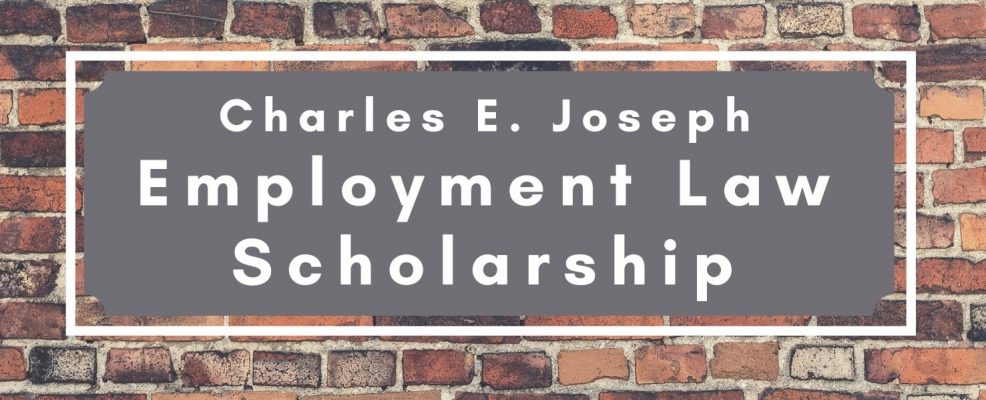
The Courts and Forced Arbitration
July 22, 2025
By Ryan Haraden
The Law Students on Workers’ Rights series publishes essays from current and incoming students from top law schools across the country. These essays, submitted for the Charles E. Joseph Employment Law Scholarship, address the question “What is the most significant challenge facing workers’ rights, and what role should employment attorneys play in addressing that challenge?”
Workers’ rights in the United States are fractured and under threat, though even a brief scan of any John Steinbeck book or labor history will tell you that such threats are not new. However, union membership is at an all-time low and the prevalence of unions that have spearheaded efforts to protect workers’ rights in the past simply no longer protect the vast majority of the modern workforce.
As workers stand alone, they repeatedly face unequal bargaining power in the creation of labor contracts. In a legally fascinating, yet worrisome, intersection between Supreme Court jurisprudence under the Federal Arbitration Act and traditional contract common law, forced arbitration clauses are perhaps most representative of such a problem.
In bringing suits regarding worker rights violations, 56.2% of private-sector nonunion employees, or approximately 60.1 million Americans, are subject to mandatory arbitration via their employment contract. Yet, despite the amount of workers subject to such clauses, a five-year average of the two largest arbitration firms between 2016 and 2020 show that workers have less than a 2% win rate with only 82 individual workers receiving monetary damages in 2020. Employee plaintiffs in federal court comparatively win 36.4% of the time and win settlements averaging about fifteen times greater than those of their arbitrated counterparts.
Regardless, the current Supreme Court celebrates arbitration in all its glory. Countless decisions, such as Eastern Associated Coal Corp. v. United Mine Workers (2000) and Epic Systems Corp. v. Lewis (2018), shows a vast judicial trust placed in arbitrators “fair” decision-making. Whether such opinions have been due to prioritizing “judicial efficiency” or a deep reverence for the right to “freely contract,” it is clear that they have been undeniably disastrous for a vast magnitude of workers hoping to present a case in front of a jury of their peers.
Contract common law is traditionally understood as having a basis in enforcing decisions made via a “meeting of the minds,” yet such a phrase necessarily can not describe the vast majority of pre-written contracts with little to no ability of prospective workers to bargain; to suggest such a relationship is one of a meeting of minds is apt to suggest an authoritarian state is a democracy. Still, the differences of bargaining power between a sole warehouse worker and the corporate entity of Amazon, for example, have not been held to unduly restrict the rights of the worker even as they waive their ability to exercise the Seventh Amendment of the Constitution.
While the Supreme Court’s celebration of arbitration does not seem to be ending, some federal legislators have pushed for a wide ranging anti-arbitration act encompassing employment, as well as consumer, arbitration clauses. While not as broad as some had hoped, 2022’s (admittedly confusingly named) Ending Forced Arbitration of Sexual Assault and Sexual Harassment Act of 2021 has been a strong win for those resisting overbroad forced arbitration. However, future efforts in the face of Republican majorities in both Congressional houses and hostility in the executive branch towards the administrative state seem stalled.
Currently, individual states seem to be much more interested in addressing forced arbitration. California’s legislature in particular has historically been on the forefront of action against forced arbitration, notably passing Assembly Bill 51 in 2020, which was later infamously struck down by Chamber of Commerce v. Bonta (2023). California’s courts have also played a role in limiting arbitration, particularly with its use of unconscionability in Armendariz v. Foundation Health Psychcare Services, Inc (2000) and beyond, a holding subsequently used by Washington as well. Connecticut’s courts have also proven willing to go after arbitration clauses, fascinatingly using public policy provisions in its strikeouts.
Despite the seeming unwillingness of the vast majority judicial system to take into consideration upsetting the status quo of forced arbitration, there has been an undeniable shift in public and legal perspectives over the past few decades and employment lawyers are here on the precipice of change. Indeed, via a quiltwork of states, policy lobbyists and employment attorneys have influenced many legislatures bringing bills regulating forced arbitration to the floor.
While the judicial system seems determined to keep arbitration a part of our legal system, as cases continue to get filled by employee plaintiffs and their lawyers the courts are continually faced with opportunities and reasons to narrow the broad power given to arbitrators. Ultimately, the arc of worker rights, though currently in a state of limbo, seems to be bending ever so slowly towards justice.
Reflections from Charles Joseph
Too many workers will experience workplace discrimination, sexual harassment, or another employment violation during their career. And arbitration agreements make it harder for workers to combine their power to take on employers. As Haraden argues persuasively, Supreme Court rulings have sided with employers – risking a return to the Depression-era policies that led to the creation of the now-weakened National Labor Relations Board.
Carveouts on the federal and state level – like the federal law against forced arbitration in sexual harassment cases – offer some protections to workers. In the future, employment lawyers will continue to play an important role in fighting forced arbitration agreements.
Ryan Haraden is a rising 2L at Georgetown University Law Center and holds a bachelor’s in psychology from the University of California, Santa Cruz. He is a summer intern at the National Institute for Workers’ Rights. Contact Haraden on LinkedIn.
Charles Joseph has over two decades of experience as an NYC employment lawyer. He is the founder of Working Now and Then and the founding partner of Joseph and Kirschenbaum, a firm that has recovered over $200 million for clients.